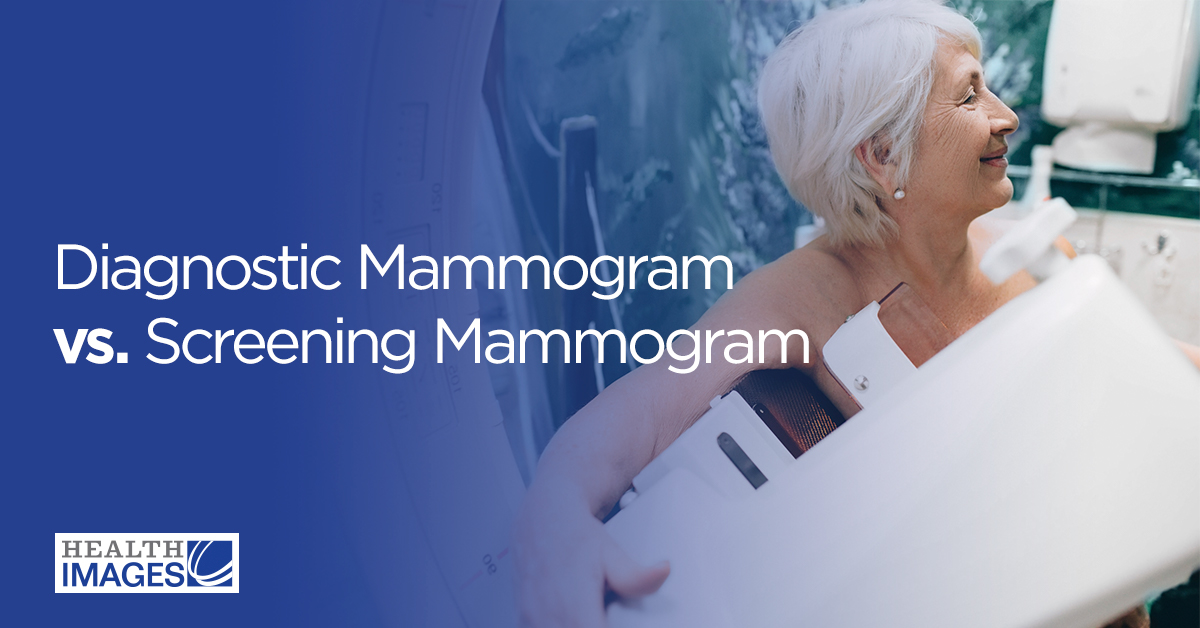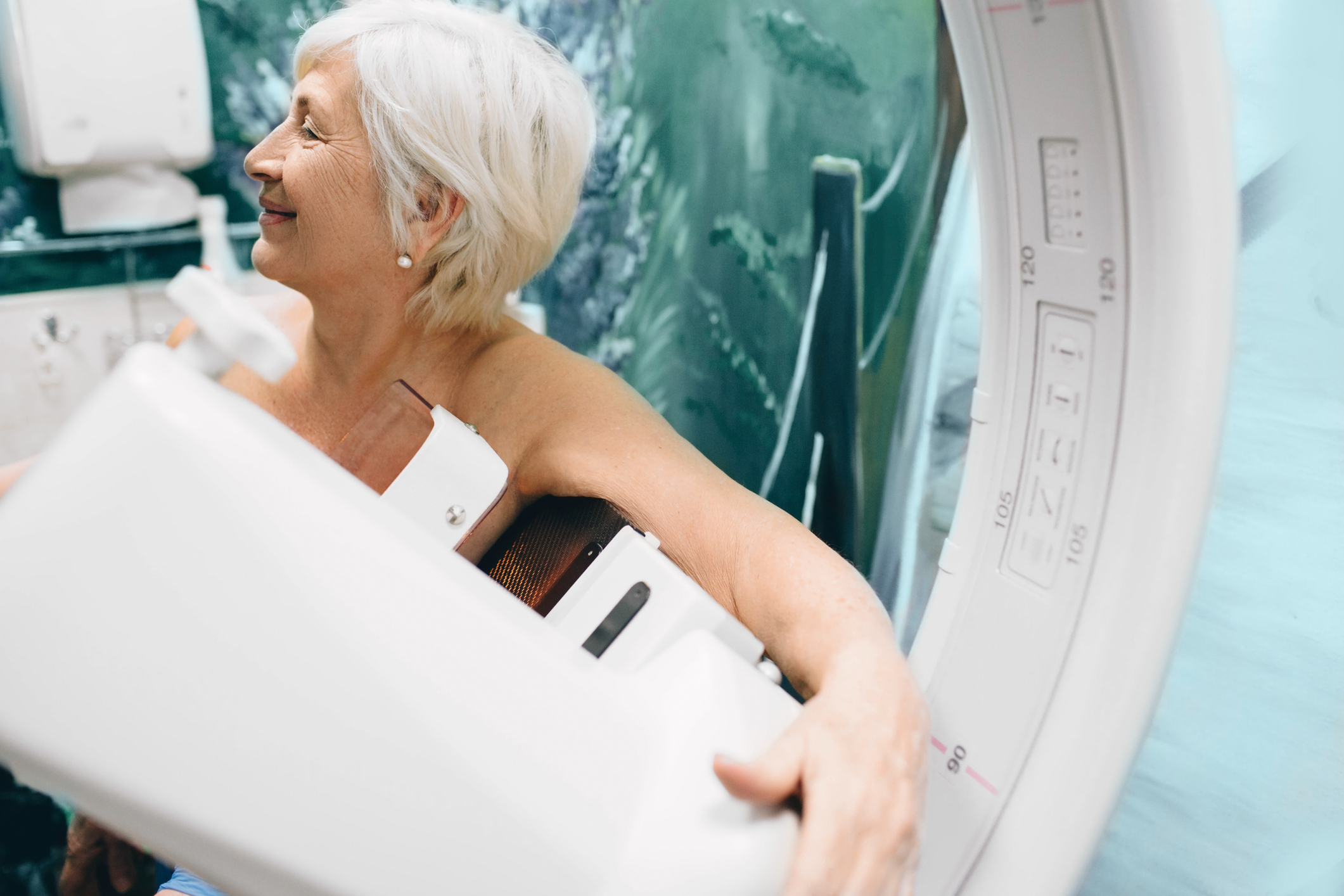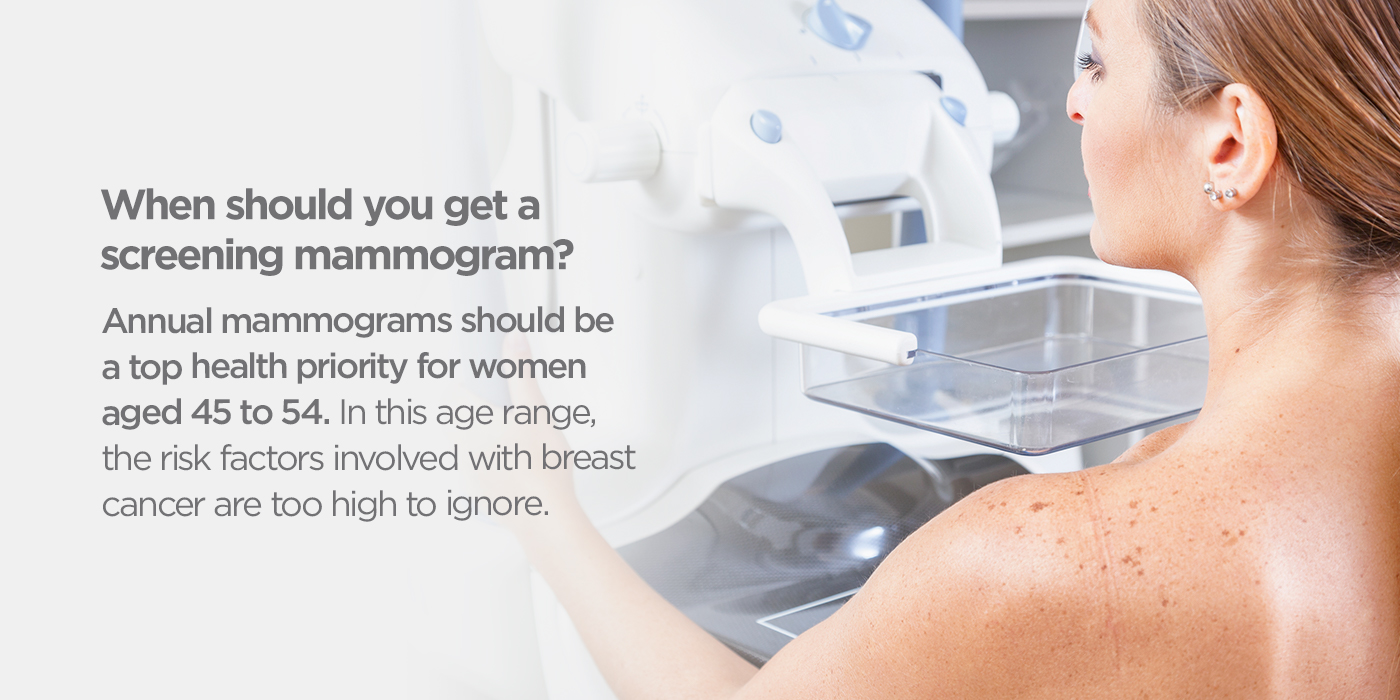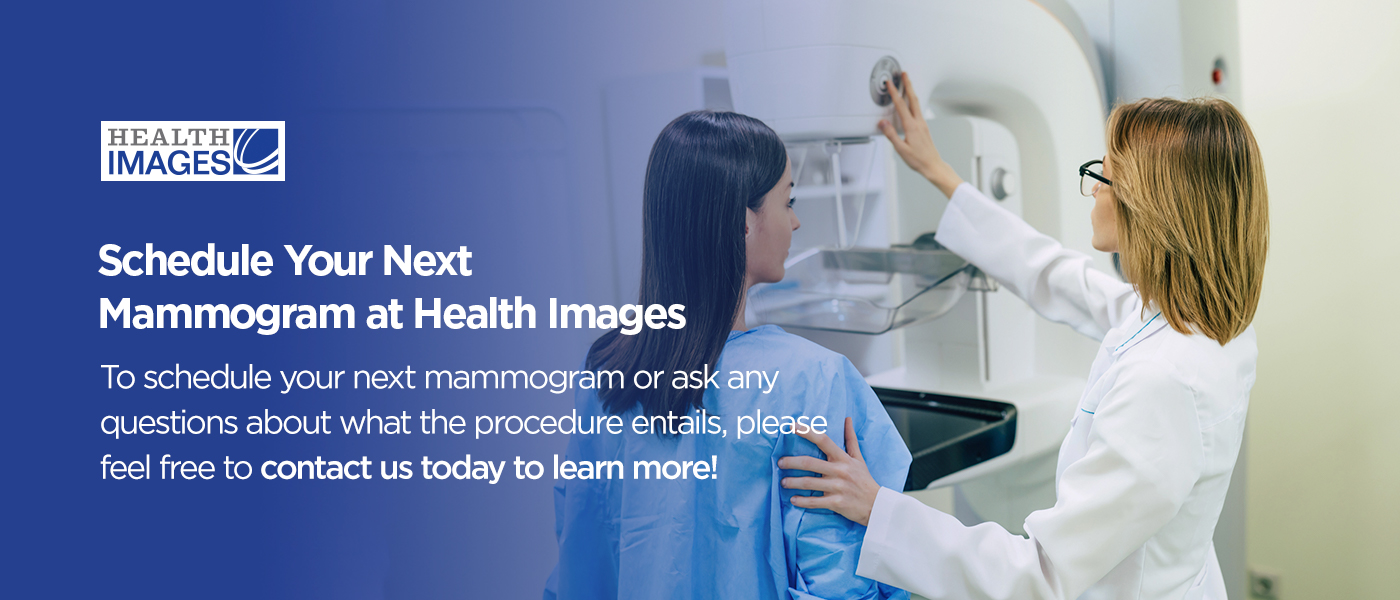Diagnostic Mammogram vs. Screening Mammogram

Are you feeling any breast pain? Have you come across something concerning during a routine breast self-exam? Has your doctor ever mentioned mammograms to you during your visits? Do you know the difference between a screening and a diagnostic mammogram?
If you don’t know much about mammography, you are not alone. Generally speaking, a mammogram is a tool used to detect early signs of breast cancer and monitor breast-related concerns over time. A technologist specializing in breast tissue exams performs mammograms. These screenings can reveal any lumps or specks such as cancer, cysts and fatty cells.
Different Types of Mammograms
There are a few significant distinctions between screening and diagnostic mammograms.
- Screening mammograms are annual preventive exams, while a doctor may order a diagnostic mammogram based on any signs of breast cancer symptoms.
- A diagnostic mammogram is more detailed than a screening mammogram.
- A screening mammogram only takes about 10 to 20 minutes, while a diagnostic mammogram can be longer.
The American Cancer Society recommends that women aged 40 to 44 consider starting annual screening mammographies, while women aged 45 to 54 should get mammograms once per year. If you are younger than 40 with a family history of breast cancer or a higher-than-average risk of developing breast cancer, your doctor will likely suggest starting yearly mammograms earlier.
What Is a Diagnostic Breast Mammogram?
Diagnostic mammograms are for women with any abnormal indications of breast cancer, or to evaluate any changes your screening mammogram might have detected. Because a diagnostic mammogram is a more in-depth exam than a screening mammogram, your physician may also order a diagnostic mammogram if you have dense breast tissue that makes it challenging to get a clear view.
A diagnostic mammogram can determine if issues like these signify breast cancer:
- Lumps
- Pain in one or both breasts
- Nipple discharge
- Thickening of the skin on your breasts
- Swelling
- Redness
- Changes in your breasts’ shape or size
An additional thing to remember about diagnostic mammograms is that these exams are more detailed, and therefore take longer. After your diagnostic mammogram, your physician might provide you with a diagnosis. Often, the results come back without flagging any significant breast cancer symptoms you need to worry about. Or, your physician might call you back for another mammogram if they want to capture additional images or the initial screening was inconclusive.
Which One Is Right for You?
When should you get a screening mammogram? Annual mammograms should be a top health priority for women aged 45 to 54. In this age range, the risk factors involved with breast cancer are too high to ignore. Your physician may recommend getting a screening done even sooner if anyone in your family has had breast cancer, or if you are feeling any pain or notice signs of concern during a breast self-exam. However, even if you don’t have any symptoms, a screening mammogram is a straightforward exam that can give you a lot of information.
Do you need to have a diagnostic mammogram? Your physician will most likely recommend this exam to you if you have any symptoms of breast cancer or other breast-related diseases. However, if you want to get a diagnostic mammogram to provide you with additional peace of mind, you don’t need to wait on your physician to recommend one to you. In most situations, people who desire more extensive results and a higher level of detail than a screening mammogram can provide are OK to schedule a diagnostic mammogram.
If you are still unsure about which mammogram you should be getting for your unique circumstances, ask your doctor. A physician can help you determine what mammogram you need to get done.
Importance of Getting a Mammogram
The best way to avoid struggling with long-term health issues is by taking preventive measures. In many cases, breast cancer is highly treatable and survivable if detected early.
Mammograms enable you to:
- Detect the early signs of breast cancer
- Track any changes with your breasts
- Decide upon a treatment plan if your mammogram spots any lumps, tumors or other irregularities
Getting either a screening or a diagnostic mammogram can help you maintain your health. These two exams enable you to take more control of your health. By using this advanced technology, you can prepare for any breast-related disease or health challenges that might arise.
Schedule Your Next Mammogram at Health Images
By getting annual mammograms or booking an appointment after reading this, you are taking a vital step to ensure your health. Remember, up to 10% of breast cancer cases are hereditary, so finding out if you have any risk of developing breast cancer could also benefit your daughter or granddaughter in the future.
To schedule your next mammogram or ask any questions about what the procedure entails, please feel free to contact us today to learn more! Our board-certified, professional female technologists will ensure you are as comfortable as possible during your screening or diagnostic mammogram, while you enjoy the luxurious surroundings of our spa-like facility. After your exam, you’ll be free to go about your day with no recovery time or activity restrictions.
Sources:
1. https://www.healthimages.com/services/mammography/
3. https://tinyurl.com/34mwa5j3 (shortened link to avoid stretching the page)
4. https://www.mayoclinic.org/tests-procedures/mammogram/in-depth/dense-breast-tissue/art-20123968
7. https://www.healthimages.com/locations/
8. https://www.mskcc.org/cancer-care/types/breast/mammograms-breast-exams/screening-guidelines-breast
9. https://www.nationalbreastcancer.org/diagnostic-mammogram
10. https://www.cancercenter.com/cancer-types/breast-cancer/symptoms





